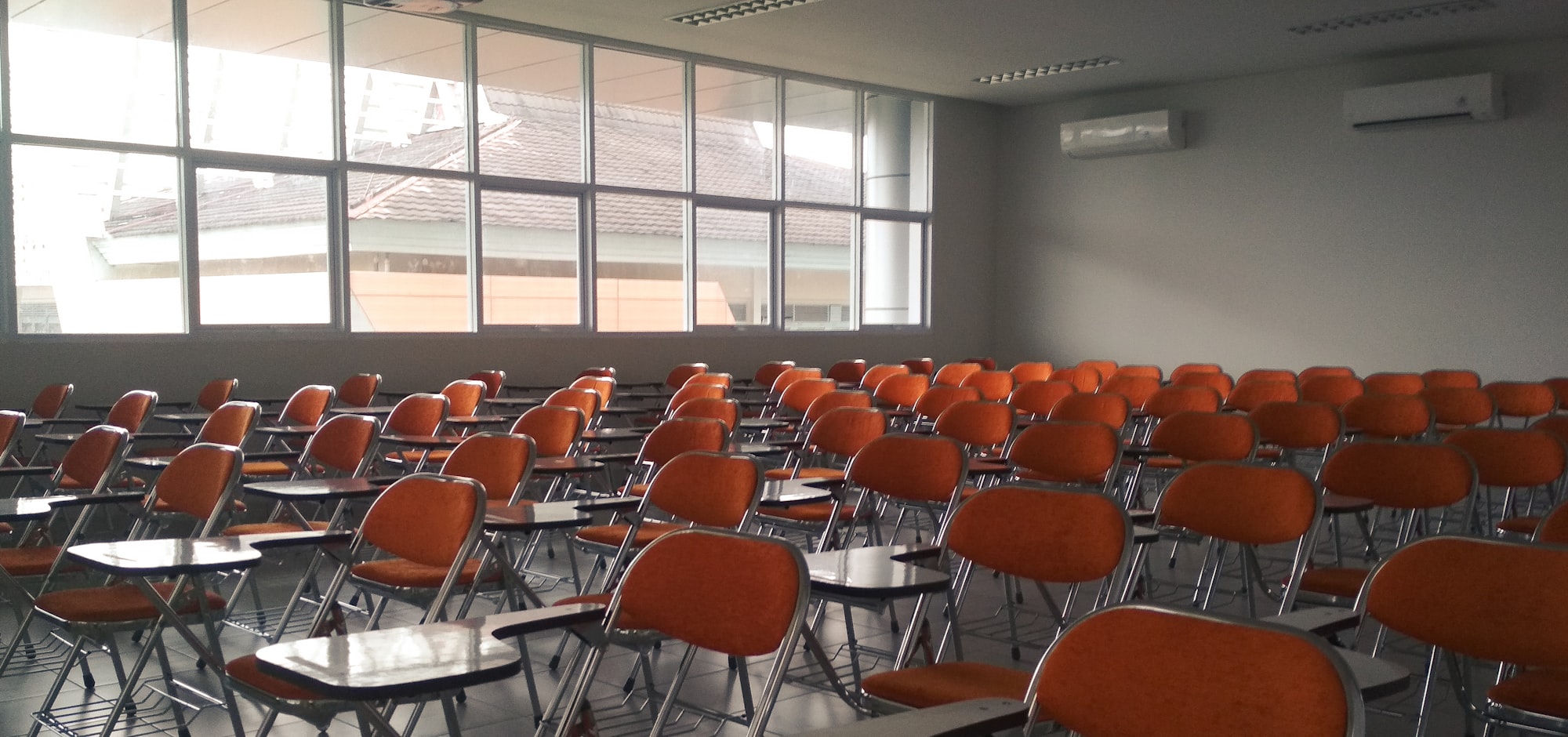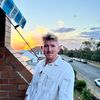The Third Monday
Thirteen inches of steel went through his chest. One inch for every year since his birth.

The following is Chapter 17 of my first novel: Charlie Walks, now available for digital download and worldwide paperback shipment!
Dad taught at our school. We lived three minutes down the road and Dad got there before us for morning duty. Mum dropped me and my brothers off. We walked through the gates, went to our places. Seniors wore white shirts with buttons, everyone else wore grey shirts. The third Monday of the year, day eleven in a white shirt.
My locker stood on the border line of the buildings and the grass, just past the safe zone near the toilet blocks. 29-33-30, I had the same lock for three years. 29-33-30 became muscle memory.
I opened it, put my stuff in, closed it, turned around. Some grey shirts ran out of the bathroom saying things, looking worried, screaming, yelling, screaming.
What’s going on? I asked them.
There’s blood in the bathroom! one said.
What?
Someone’s bleeding in the bathroom! another said.
Where?
Around their neck! the first one said.
The kids were worried. Real worried.
I turned and walked towards the bathroom, the kids ran off. Wearing a white shirt meant this was my job. Look after the grey shirts. I didn’t think. Only walked. The kids were worried. I heard it in their voices. I kept walking.
In the bathroom I turned right, walked to where the sinks were, turned right again. There it was. There he was. There they were. Down the end of the hallway. The hallway I’d been down a thousand times. The hallway with cubicles on the left and the right, decorated in graffiti and there they were.
My dad’s legs spread out across the floor, his back against the wall. A young boy lying across his lap, a grey shirt, both of them in a pool of blood. I’d never seen a pool of blood that big, not even when I broke my nose in Year 8. It stretched from the left cubicles to the right.
My dad’s hands gripped the boy’s chest, one on the front, one on the back. The lady from the office knelt beside them. The lady I’d seen hundreds of times the lady I’d speak to when I was late the lady who’d sign me in the lady who would call my parents when I was sick. Now she was there. Crying on the edge of the blood puddle.
Crying.
Sobbing.
She looked at me, screamed.
Get Dr Carter!
I ran out the other entrance, ran to Dr Carter’s office down the long hallway, the staff hallway. I stopped. They were already on their way, Dr Carter, the dean, the deputy, everyone.
Where are they? Dr Carter asked.
In the bathroom, down the back of the stalls, I said.
They kept walking. My heart beating, beating hard, beating fast but I was calm. I went out the doors and down to the courtyard, running. Don stood at his locker. My best friend. I yelled to him.
There’s someone bleeding in the toilets! I said.
What?
Come quickly, come!
We ran up to the bathroom. Went in. Don saw what I saw. My dad, a grey shirt stained red, hands on chest, sobbing, pool, five pairs of eyes looking at each other, phones, sobbing.
Kids came in the entrance. Don and I ushered them out. Nothing to see here, nothing to see here.
A lie, there was everything to see.
We heard the adults talking. Paramedics were on the way. Don and I stood at the entrances, one of us at each. More grey shirts walked up, wanting to know what was happening. I told them someone was hurt. Someone’s hurt but they’ll be okay. The words came out of my mouth but I didn’t know if I believed them or not. I kept saying it. Someone’s hurt but they’ll be okay. Don did the same on the other side.
Paramedics were on their way.
Every second an eternity.
The third Monday of senior year.
Paramedics were on their way. That’s all I could tell myself.
More kids walked up, told them, someone’s hurt but they’ll be okay.
They’ll be okay.
Sirens roared out of the air. The van drove right up the guts of the school.
I sat on the floor with the rest of us in lockdown, more grey shirts, white shirts, teachers in what they’d usually wear. They didn’t know what was going on. I didn’t know whether to tell them or not. Somehow they knew I knew.
They asked what happened.
I told them someone’s hurt but they’ll be okay.
I messaged my mum. Told her the school was on lockdown. She messaged back, worried, how are your brothers, are you safe, we’re all right Mum, we’re all right.
We sat locked in the classrooms until a call came over. Everyone to the hall. Grey shirts, white shirts, teachers, everyone.
We went and it was quiet. Eight years I’d been at the school and there was never quiet.
Dr Carter got up on stage. Told us what happened. The young boy passed away in the ambulance. Some started crying, sobbing. Others stayed quiet. Real quiet.
I looked around everywhere but couldn’t see Dad.
That night at home my brothers and I did our thing. Dad was there not saying much but words aren’t needed when you can feel them in the air. I’d never seen my dad cry.
He told us about the boy’s shirt. The sleeve on his arm freshly pressed, no creases, taken care of. It made him think of the boy’s mother. A loving mother taking care of her little boy’s grey
shirt. Ironing the sleeves and in between the buttons. Getting him ready for school sending him off kissing him goodbye.
Saying have a good day Son, I love you.
The third Monday.
Another week in the school year.
Young and small, the same age as one of my little brothers, the same age as dad’s third son.
Through the chest and out the back, thirteen inches of stainless steel, an inch for every year since his birth. Pierced the vein to his heart. They found the other boy, another young boy, maybe one or two years older, another grey shirt down the street. Two young boys.
One dead.
One alive.
Both lost.
The councillor wanted to see me. I told him I was fine. I felt bad. I was fine. I shouldn’t be fine but I was. He asked me if I was sure. I told him I’m sure.
Dad wasn’t.
PTSD the doctors said. Post-traumatic stress disorder. Holding the boy, seeing the pressed shirt, seeing the freshly taken-care-of grey shirt, thinking of the mother. It triggered the cascade. Dementia, Parkinson’s, Alzheimer’s. The ones which take a person’s ability to think, ability to remember, ability to move. Abilities taken for granted.
Stub your finger and it’s all you can think about.
Imagine.
Each of your limbs vibrating twenty-four hours a day and a permanent disconnect between the thoughts in your head and the words coming out of your mouth.
A sick person wants one thing, a healthy person wants…
Ten years had passed, almost eleven. Dad was still sick. But I didn’t see it that way. He didn’t either.
On paper yes, the holy trinity of cognitive diseases, you heard doctors speak of PTSD, but not about PTSG. Post-traumatic stress growth.
Things stopped happening, he couldn’t work, couldn’t drive, stopped cooking roasts on Sundays, started to forget things here and there. Memories fading but never losing a gram of wit. Character finds a way to stick around.
He still knew how to make people smile.
Make them laugh.
We called him Slick. The coffee shop did too.
At night I talked to Mum and she’d cry. Sad for losing a husband and a friend. She talked through tears told me she didn’t plan on becoming a carer at this age. I didn’t know what to say but I listen. I was old enough to help then. I tried.
His dad, my grandfather, had a saying. I never met him but Slick told me it.
Grin and bear it, he said.
It’s what Dad did.
What happened is terrible but what can I do? he said.
I got people telling me I’m losing it. And I am. Experts telling me I shouldn’t do things. So what? I’ve got no choice. Grin and bear it. And that doesn’t mean not listen to them. Sure, I’m not driving, not doing things I once did. But I’m not letting it stop me from having a good time.
I smiled. Told him, I love you Dad.
I tried it.
When things got hard. I thought of Dad. Thought of the young boy in the grey shirt with the buttons. The pressed sleeve. The other boy, the one who did it, he’d be grown up now.
Thought of Mum, her strength, her love, her sitting on the couch in tears but still getting up smiling and running the house like a German car factory. The third Monday. The saying.
Grin and bear it.
Now old enough to make it my own.
Grin and let go of it.
